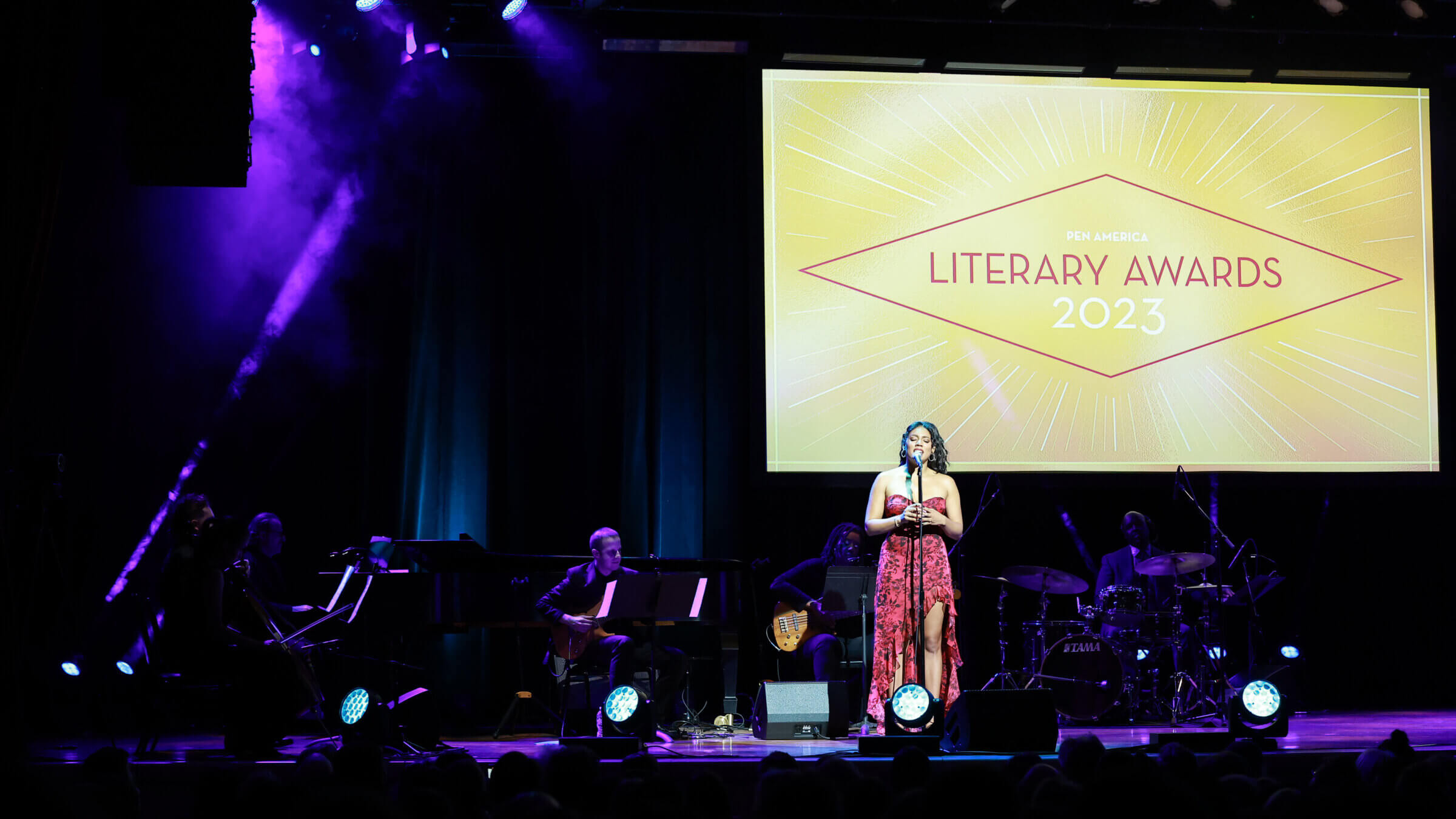PEN America cancels New Voices festival over author outrage at Gaza response
The move comes just days after the organization canceled its annual awards

The 60th annual Literary Awards in 2023. Photo by Arturo Holmes/Getty Images
PEN America, a free-speech advocacy watchdog, has canceled its New World Voices Festival in the aftermath of a monthslong campaign objecting to the organization’s response to the war in Gaza. In announcing the cancellation, PEN showed great concern over a climate of fear that imperils their work to uplift free expression.
The move comes after PEN announced Monday that it would cancel its Literary Award ceremony. Last week, in the most recent and prominent protest, over two dozen authors and all but one author longlisted for the awards’ top honor, the $75,000 PEN/Jean Stein Book Award, withdrew from consideration for the prize. Following the cancellation of the awards, that prize was instead earmarked for the Palestinian Children’s Relief Fund.
“The event, and the very mission of PEN America, is to elevate writers and foster dialogue across differences,” PEN wrote in a Friday statement. “Yet we have heard from writers who have come under tremendous pressure by those who characterize anyone who participated in our events, as taking sides in the war in Gaza.”
The statement noted that, while many writers withdrew from the festival citing PEN’s response to the war in Gaza, they heard from dozens of writers who expressed “genuine fear” over demands to distance themselves from the organization.
“As an organization that cares deeply about the freedom of writers to speak their conscience, we are concerned about any circumstance in which writers tell us they feel shut down, or that speaking their minds bears too much risk,” the statement said. “Amid this climate, it became impossible to mount the Festival in keeping with the principles upon which it was founded 20 years ago.”
“The premise of World Voices is to engage across wide chasms of worldview and belief, including fostering direct conversation between and among those who disagree profoundly,” said PEN America CEO Suzanne Nossel. “We share the anguish over the loss of life and devastation of the war. We are listening to our critics.”
Nossel affirmed that PEN was taking steps to support writers and stand for free expression, even as they “face a campaign that casts our struggle to reflect complexity, uphold our identity as a big tent organization, and show fealty to our principles as a moral abdication.”
“The perspective that engaging with those who hold a different point of view constitutes an impermissible act of legitimization negates the very possibility of dialogue, Nossel said. “It also betrays the essence of PEN’s charter and mission to dispel hatreds and engage writers and literature as a catalyst for empathy and a bridge toward common ground.”
Before PEN’s cancellations, a flurry of open letters, from authors like Naomi Klein and Roxane Gay, alleged that PEN was failing to protect writers. Although the organization has previously made statements about the war in Gaza, and called for a ceasefire in March, such authors expressed a belief that the calls were not strident enough, writing in an April 17 letter that, by not responding to the war earlier, “PEN America’s leadership has eroded our confidence in its mission.” They also took issue with PEN America not calling the war a genocide and called on Nossel to resign.
“We greatly respect those writers who have followed their consciences and stand with those who felt compelled to this decision by virtue of the pressures they faced,” said PEN America’s literary programming chief officer Clarisse Rosaz Shariyf. “We are committed to hosting a Town Hall convening in the near future to create a space to wrestle with the issues gripping the literary community and our own organization. We will welcome all of those slated to be Festival participants as well as PEN America members to be part of this event, and will share details on that soon.”
PEN noted in its statement that multiple Palestinian writers were to be featured in this year’s festival, “enabling them to speak not just about the war but about their own books and works.”
The organization regretted that this was no longer possible.

















